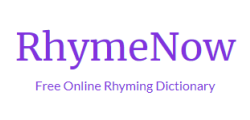Welcome to Poetry4kids. I’m Kenn Nesbitt.
Valentine’s Day was coming up, and I had been trying for days to think of something funny to write about—but nothing seemed quite right. Then, in the middle of the night, I woke up from a sound sleep with the ending of this poem suddenly clear in my head. I grabbed my phone from the nightstand, quickly jotted down the idea, and went right back to sleep. The next morning, when I looked at what I had written, I still thought it was a good idea, so I sat down and finished the poem.
Sometimes coming up with ideas is easy, and sometimes it takes a little longer. But there’s no need to get frustrated. Just remember that it’s important for writers to have a way to capture ideas whenever they appear—whether it’s a notebook, a phone, or even just a scrap of paper. And remember, you don’t always have to write a poem or story in order! If the ending comes to you first, like it did for me, you can start there and work your way backward. Inspiration doesn’t always follow a straight line, but when it strikes, be ready to catch it!
Without further ado, here is…
Our Teacher’s Valentine
The students in our classroom
made a Valentine today,
a giant heart on cardboard,
out of pink and purple clay.
We added beads and buttons
to our beautiful design,
then covered it with glitter
to ensure that it would shine.
We gave it to our teacher
to express how much we care,
to tell her that we like her
and we’re glad to have her there.
She said it was a masterpiece.
She said it made her day.
She placed it in a picture frame
to put it on display.
She told us we were brilliant
as she hung it on the wall,
like art on exhibition in
some gallery or hall.
It’s nice to know our teacher thinks
we’re talented and smart.
We’re glad we made her happy with
our little work of heart.
— Kenn Nesbitt










